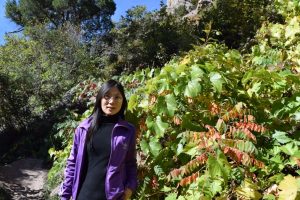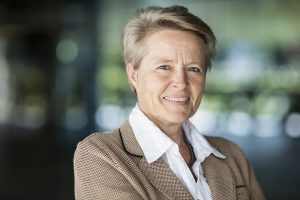Prof. Weiqing Han, University of Colorado at Boulder, USA and Prof. Sabine Schindler, University of Innsbruck, Austria have been elected as the 2020 Johannes Geiss Fellows. Prof. Weiqing Han is a world-renowned oceanographer who specializes in Global Sea Level Change, in particular, in coastal regions. Prof. Sabine Schindler is a highly recognized astrophysicist who specializes in the observation and modeling of galaxies and galaxy clusters. We have tele-interviewed both, asking a few questions about their upcoming fellowships at ISSI.
Prof. Han, Prof. Schindler, first of all, congratulations on your election as the Johannes Geiss Fellows 2020! What was your motivation to apply for the Johannes Geiss Fellowship at the International Space Science Institute? And have you already made plans when you will visit ISSI?
Weiqing Han: The ISSI has been doing and leading active research in global and regional sea level variability and change, which fits my research interest and has been one of my major research focuses in the past decade. The motivation of my application is to establish collaboration with ISSI, and hope that by combining our effort and working in a simulating environment we can more effectively achieve our research goal.
Sabine Schindler: The International Space Science Institute is well known in the community – and well known to
me – as an excellent place for networking and communication in space science. To spend my sabbatical there with a Johannes Geiss Fellowship seemed ideal to me to expand the connections to the space science community and to the Swiss universities. I am very happy, that this Fellowship was awarded to me and I am looking forward to my stay in Bern. I plan to start my visit in November.
Could you describe your scientific project(s) on which you plan to work during your visit to ISSI?
Weiqing Han: Rapid sea level rise is one of the most consequential impacts of the warming climate, exerting threats to human society in low-lying coastal areas and island nations. The observed rates of sea level change in the past few decades and century, however, have large spatial differences due to a complex mix of natural and anthropogenic factors. During my proposed visits to ISSI, I plan to investigate the effects of continental shelf and slope on coastal sea level signals that originate from open ocean. This area of research is important, because coastal bathymetry plays a crucial role in accurately depicting open-ocean impact on coastal sea level during historic periods and for future projections. Yet, this information is extremely limited due to the lack of high-resolution, basin-scale datasets and model experiments that can adequately resolve continental shelf and slope.
Firstly, we will analyze tide gauge observations, gridded satellite altimetry data, coastal altimetry data, together with reconstructed and reanalysis sea level products, to understand in which coastal areas a large amount of interior ocean signals can arrive at and be trapped to the coasts. While tide gauges are right on the coasts, altimeter data are contaminated by lands near the coasts. Therefore, the location of altimeter data may be a few tends of kilometers offshore from the tide gauge location. Secondly, we will analyze large ensemble (LE) and CMIP6 climate model historic simulations, comparing the relatively coarse resolution model results with those of finer resolution ones, which can better represent continental shelf and slope.
Sabine Schindler: I plan to work on extragalactic astrophysics. I have a special interest in galaxies and galaxy clusters for two reasons:Firstly, for the physical processes and interactions that determine their evolution and secondly, for their cosmological applications. I plan to do observations as well as numerical simulations to do study these topics. I furthermore intend to do some interdisciplinary research, if something interesting is coming up in my discussions with the colleagues. I will keep my eyes open in this respect.
Prof. Schindler, is there a particular galaxy (or galaxies) you plan to focus on? And if so, why this particular one?
Sabine Schindler: I usually focus on processes, like e.g. ram-pressure stripping in galaxies or metal enrichment in galaxy clusters. I then select my targets according to the best suitability for a particular question.
Have you been to Switzerland and what – in addition to ISSI – makes Bern appealing to you for a visit?
Weiqing Han: In 2015 and 2018, I was invited to attend the sea level workshops organized and hosted by ISSI, Dr. Anny Cazenave from ISSI and Dr. Detlef Stammer from the U. of Hamburg, which aimed to tackle important but challenging issues toward understanding and projecting global (2015 meeting) and coastal (2018 meeting) sea level changes. On my side, the outcomes of the two meetings are that I led two review articles that were published in Surveys in Geophysics, one for climate modes’ impacts on spatially uneven sea level changes in the world’s oceans (published in 2017) and the other, focuses on impacts on coastal ocean (published in 2019).
Sabine Schindler: I have been to Switzerland before, both for work and for pleasure. I have enjoyed both. There is a very interesting astrophysical community in Switzerland, that I plan to visit. I have also been to Bern before, which I liked very much as a city.

Prof. Weiqing Han, University of Colorado at Boulder, USA

Prof. Sabine Schindler, University of Innsbruck, Austria
